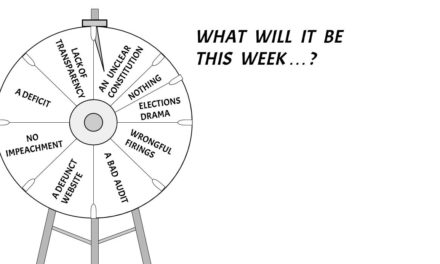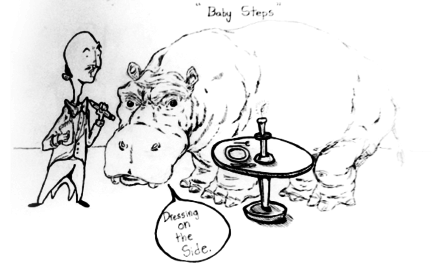I’ve heard a lot of atheists use the “Spaghetti Monster” argument in my day. Perhaps you are familiar with it: There could, for all we know, exist a spaghetti monster orbiting Jupiter. Although to date we have no record of it. If you so wish, you can have faith that it exists, but I see no reason to believe that it exists any more than unicorns.
I will make a lot of atheists angry, but that argument is nonsensical. I respect the idea of not believing in something until it is proven or at least has some evidence to back up its existence, but people who believe in God do not do so because they think the idea sounds nice or because someone dreamed Him up a while back and they liked the idea.
Along with the existence of God should come a long list of other beliefs, including evidence of His interaction with the universe (or at the very minimum formation of it, according to deists).
Theists take ideas, notably the fine-tuning of the universe, the incredible and the harmony of the complexity of chemistry, the existence of objective moral values and evidence of the supernatural (though its very nature or should I say, “supernature,” makes it the cause of much controversy) to mean that God exists and interacts with the world. Of course each of those arguments in and of themselves – or even taken as a whole – do not prove the existence of anything, though they do, according to many, seem to point to a Designer.
It is by a leap of faith that one takes them to believe in God’s existence.
Before my atheist readers condemn this article for sentimental religious rubbish and burn it in the nearest fireplace (I recommend Longstreet’s, where you will also have a chance to meet champions), I would like to present your side of the issue.
Atheists are naturalists; that is, they believe the natural world is all there is. Their faith is not in God, but it is in science. Science, however, hasn’t the explanation for everything. It may, one day, as many atheists like to claim, but it takes a measure of faith to believe.
Atheists commonly cite the atrocities of the Old Testament along with many current examples of suffering (though this is in fact only evidence against a “loving” God), the problem of evil, the ability of science to explain what was before attributed to God, the hiddenness of God and the absence of the supernatural today, all as evidence against the existence of a God.
It still takes faith to come to that conclusion, because none of that evidence is conclusive in and of itself (if it were, only ignoramuses wouldn’t be atheists).
Faith does not only pertain to matters of religion; we see it quite often in our otherwise secular lives. For instance, in marital fidelity. No one has proved that a spouse will be faithful; rather, by extrapolating from past experiences one can only have faith that will be the case.
This reminds me of a debate in which an atheist, after ridiculing faith, was asked by his opponent about his wife and whether or not he had faith in her.
He did not respond but turned cherry-red.
The fact is, faith extends to many parts of our lives and is not something to be shunned; rather, faith is sometimes an expedient means by which to operate. Not many people lack faith in the Earth’s ability to turn year after year and orbit around the sun. Not many people lack faith in the sun’s continued ability to shine either.
My most important point is that faith is not – should not – be blind. There is evidence upon which it is based, though, granted, there is evidence against it. But in the end, atheism is as much a faith as theism; the only true middle ground is agnosticism, which simply skirts the decision entirely. Hence, by ridiculing one’s faith – if it is indeed grounded in a conscious decision made on facts and not merely nominal – one is ridiculing one’s decision, which, by the the same logic, can go either way.
Essentially, you are ridiculing the fact that they see differently than you – that they are different from you. If you want them to share your own decision, present the facts as you see them, shed the context from which you see them, but always be ready to receive theirs. Seek to understand before you seek to be understood.
Jonathan Warkentine is a College freshman from Almaty, Kazakhstan.
The Emory Wheel was founded in 1919 and is currently the only independent, student-run newspaper of Emory University. The Wheel publishes weekly on Wednesdays during the academic year, except during University holidays and scheduled publication intermissions.
The Wheel is financially and editorially independent from the University. All of its content is generated by the Wheel’s more than 100 student staff members and contributing writers, and its printing costs are covered by profits from self-generated advertising sales.






In your January Defense of Faith you mention not believing in Unicorns. These animals did exist along with saber tooth tigers etc. But since your bit refers to “in my day” you are forgiven, and their bones can rest in peace, Unlike stirring words..